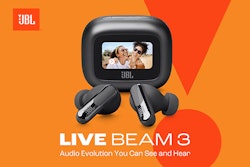How to recognize trucking’s common cons and protect yourself.
Snake-oil salesmen have always lurked around the edges of legitimate business practices. They prey on your insecurities, your dreams, your fears and your natural inclination to trust a fellow human being. Fortunately, there are ways to protect yourself. The first defense is to recognize the red flags, such as wild claims, requests for cash advances, vague language and testimonials that can’t be traced.
There were bright red flags in one classic bait-and-switch that happened to a member of the Owner-Operator Independent Drivers Association, recalls Gary Green, business services manager. The victimized trucker showed up at an empty lot with a $6,000 cashier’s check. He had emptied his savings and checking accounts, borrowed from friends and family and sold his car to fund his dream: buying a truck. But the old, beat-up truck brought to the lot was not the one promised; another “lucky” trucker, he was told, beat him to that prize. Embarrassed and unsure of his options, he signed papers committing to steep monthly payments and drove off.
Green points out the red flags: The trucker thought he was getting an incredible bargain; he was asked to bring cash; the sale item was switched; he felt he was in too deep to get out. “I’ve heard different variations of the same old story, but the bottom line is, if it’s too good to be true, it usually is,” Green says.

The business climate for owner-operators can grease the path for such fraud, says Todd Spencer, OOIDA executive vice president. “When you operate on a tight margin, and uncontrollable factors like fuel prices can put someone out of business, it’s not hard to see how you could be susceptible to a get-rich-quick scheme,” he says.
Other scams take advantage of a victim’s insecurity. Gail Toth, president of the New Jersey Motor Truck Association, recalls scammers at the Newark exit of the state turnpike who preyed upon truckers who seemed unfamiliar with the area. The scammers identified themselves as “greeters,” claiming they could help truckers through the confusing trucking regulations in New Jersey. Many truckers paid a fee of $50 to $100, received a receipt and expected to receive a refund upon exiting the toll road.
Many schemes use some level of deception to part you from your hard-earned bucks. Some products and services can lure you into a bad business decision, one that could be avoided with research or wise counsel. Other claims are highly misleading. Some are outright fraudulent.
Watch out for panhandlers with sob stories, truck leasing programs with unfavorable terms, fly-by-night trucking schools, legal services that promise more than they can deliver, and health products promoting easy weight loss, energy, youth and vitality. Here are seven other areas that warrant skepticism.
EQUIPMENT BUYING AND SELLING
Paul Brickman, an owner-operator from Carpenter, Wyo., posted a ’98 Transcraft Eagle Combo flatbed for sale on an online trading board. A prospective buyer wrote: “A client of mine is indebted to me ($12,500). I will instruct him to issue the check in your name, and you will deduct the cost of the Transcraft Eagle flatbed ($9,000) and send the leftover by Western Union money transfer.”
Brickman, who insisted on waiting until the check cleared before releasing the trailer, never heard back from the con artist.
Sellers never should turn over merchandise until the buyer’s check has cleared the bank, says Nick Petsos, vice president of TruckTraderOnline. Tell your bank you want to know when it has verified the funds so that you can release the item.
HOW IT WORKS: Con artists target online sites for equipment buying and selling. They zero in on motivated individual buyers or sellers. The key to this con is to convince the target to “trust” the scammer and release the equipment before the funds clear or to accept payments that seem official but are bogus.
RED FLAGS: For sellers: Buyer offers a check for more than the selling price; complicated payment plans; no identification available from the buyer. For buyers: Seller asks you to pay with wire transfers (before you take possession of equipment); international transactions, especially if the seller is offering free shipping; deals below market rate; no proof of vehicle identification number; no photos of the vehicle with a close-up of the VIN badge.
FUEL-SAVING PRODUCTS
Products claiming to enhance diesel performance pop up like mushrooms after rain when fuel prices spike. Some of these are quite novel, such as heaters, coolers, magnets or metals that are supposed to affect the fuel. One product, a small sticker that attaches to the fuel tank, is supposed to emit “holographic frequencies” that reduce fuel consumption by 20 percent.
The most common are solutions or pills you mix with diesel. Some reputable ones have been around for years, make only modest claims and have credible track records. Others are more speculative and are backed by no rigorous on-road or laboratory testing.
The most scientific, accurate way to evaluate such claims is with the jointly developed SAE/TMC (Society of Automotive Engineers and Technology and Maintenance Council) road fuel economy tests (type II, III, IV), widely considered the industry standard for such testing, says Robert Braswell, technical director of the TMC, an arm of the American Trucking Associations.
Also, you can check with the Federal Trade Commission (www.ftc.gov) for a list of products considered to be bogus.
HOW IT WORKS: Some additives claim greater efficiency by coating the combustion chamber. Other products claim to work by changing the molecular makeup of the fuel so that it burns more efficiently or produces more power. These processes can be quite involved, such as a device that claims to remove hydrogen from water and inject it into the air intake.
Marketers have been known to slap a phony Environmental Protection Agency approval sticker on their product. In fact, EPA measures only tailpipe emissions to make sure the product doesn’t increase pollution.
RED FLAGS: Products that claim fuel savings of more than 5 percent; promises to change the chemical makeup of fuel or oil; testimonials from satisfied customers who are not fully identified or who lack the expertise to test products accurately; false claims of testing or approval by a government agency.
TAX BREAKS
Filing an income tax return would seem to be a straightforward thing. The Internal Revenue Service issues its rules; tax preparers follow them.
In reality, it’s not that simple. While honest tax preparers who specialize in trucking might have valid disagreements over whether certain expenses are deductible, some accountants take extreme liberties with the tax code.
Going with a fly-by-night service can result in thousands of dollars of fines and even jail time, says Matt Amen, vice president of American Truck Business Services in Denver. “Do due diligence on the service you use,” he says. “Make sure a CPA signs off on your form. Check them out, especially if their claims seem excessive.”
HOW IT WORKS: The tax preparer assures you he can find all kinds of deductions you didn’t know existed. Problem is, some really don’t exist, such as tips to a “fuel jockey” for pumping diesel. Some promise you don’t have to pay taxes at all. Most claim they can obtain larger refunds than “traditional” services and base their fee on the amount of the return.
RED FLAGS: Extravagant refund promises; deductions that sound dishonest; a preparer who refuses to sign the tax return; a preparer who asks you to sign a blank form, or a form filled out in pencil.
CREDIT CLEANING
If you’ve had credit trouble, you may be vulnerable to someone offering to “clean your credit” for a hefty fee. No one has the power to delete true incidents from your record or similarly manipulate your credit history so that your credit score is improved.
Furthermore, you don’t need to pay anyone to review your credit history or correct mistakes, says the Better Business Bureau. Under the federal Fair and Accurate Credit Transactions Act, you are entitled to a free copy of your credit report from each of the three major credit reporting agencies once a year. The only free site for this service is www.annualcreditreport.com, which explains how to request changes to your record.
HOW IT WORKS: A business runs ads targeting truckers with bad credit. The advertiser claims that for a fee, it legally can remove negative information from your credit report.
RED FLAGS: The company doesn’t tell you what you can do yourself for free; suggests you don’t contact the credit bureau directly; asks for money up front; advises you to create a new credit identity by obtaining a federal employer identification number; buries its offer to check your credit report within other financial service offers.
WHEEL POLISH
Owner-operator Michael Goodman of Chattanooga, Tenn., says he’s seen dozens of flim-flams and even has fallen for one, buying super-duper wheel polish that turned out to be less than super.
“Newbies don’t really know all the ways they can get rooked,” Goodman says. “Wheel polishers hit you up all the time. You’ve got to be skeptical in this business.”
HOW IT WORKS: A trucker hires someone to polish his wheels, and the chrome sparkles like never before. The trucker buys what he thinks is a bottle of the expensive but superior wheel polish. He’s miles away when he tries out the product himself. Surprise! It’s a worthless concoction, and he’s scammed by a bait-and-switch.
RED FLAGS: You’re asked to pay for a product you haven’t personally tested; the product’s packaging and labeling are unprofessional.
COUNTERFEIT PARTS
Quality can vary considerably on aftermarket replacement parts made by someone other than the original equipment manufacturer, but the parts are legal. What’s illegal are parts counterfeited under the OEM brand. Brake components, often manufactured overseas, are the most commonly counterfeited truck parts.
HOW IT WORKS: A counterfeiter sets up shop in the back of a trailer in an empty lot and advertises via CB radio that he’s got cheap parts. The package looks similar to authentic name-brand products, but the price is significantly below market value.
RED FLAGS: Packaging with blurred or misspelled words; no manufacturer contact information or part code number; no trademark or copyright insignia; unusually low price; temporary sales location.
E-MAIL SCAMS
E-mails with some wild story of political overthrow (often allegedly in Nigeria) and related fortunes to be claimed by submitting a down payment continue to snag victims, even though such “phishing” schemes have been thoroughly discredited.
Also known as “419 scams” after the Nigerian penal code for fraud, these mass mailings generate thousands of complaints to the Financial Crimes Division of the U.S. Secret Service.
Amen says a trucker client lost five grand to such a scheme. “That’s money down the drain,” he says.
Phishing is any scam that uses e-mail to pry confidential financial information from victims, often by mimicking inquiries from legitimate financial institutions, Amen says. “The one sure way to never fall for these schemes is to never release any personal information, such as Social Security number or account information, to any e-mail request,” Amen says.
HOW IT WORKS: Versions of the scam ask the receiver to send cash to a would-be official while his assets are “frozen,” and in exchange you will receive a large sum of money. Most phishing scams claim to be from such companies as eBay or a bank; they claim that your account has been compromised or a security update is urgently required.
RED FLAGS: References to Nigeria or other foreign countries; requests for cash; complicated instructions; requests to give out account numbers, passwords or Social Security number.
Most scams falter under a healthy dose of common sense. Evaluate every “golden opportunity” with skepticism and research. Get counsel from friends or professionals you can trust. Don’t rush anything. And remember: The only free cheese is in a mousetrap.
IS IT A SCAM?
The Better Business Bureau lists these red flags commonly associated with scams:
- A deal that sounds too good to be true
- Use of a P.O. box or a rented mail drop
- A name and logo that closely mirrors a popular brand or business
- Pressure words such as “urgent,” “final deadline” and “act now”
- Immediate requests for cash, a check or a money order
- Failure to respond to questions, or vague answers
- Insistence that you finalize a deal or provide personal information, such as a Social Security number
SCAM-BUSTING SITES
BETTER BUSINESS BUREAU (www.bbb.org): Fill out a form, and the bureau will give you a Reliability Report on the company in question.
FEDERAL TRADE COMMISSION (www.ftc.gov): Read about FTC actions filed against shady companies.
NATIONAL FRAUD INFORMATION CENTER (www.fraud.org): Obtain information to help you avoid telemarketing and Internet frauds.










